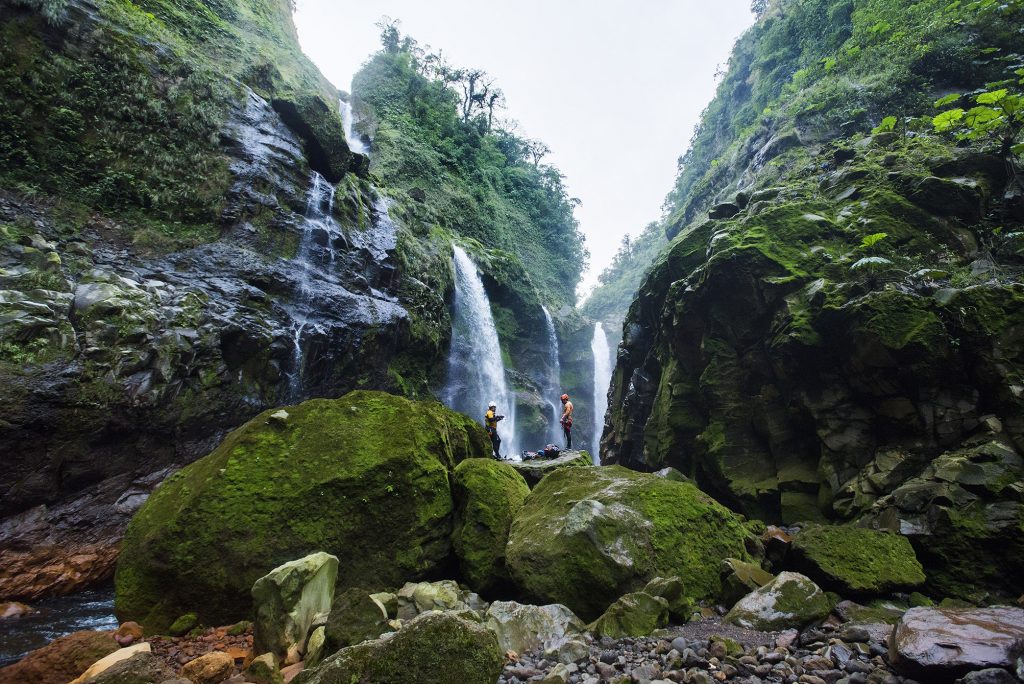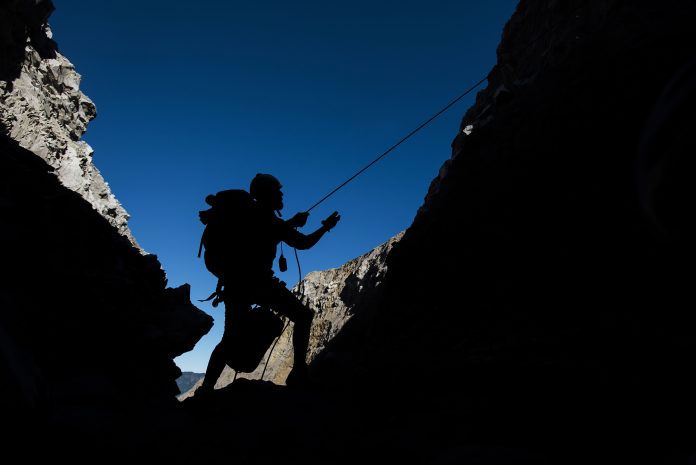[modula id=”4415″]
Here in the year 2021, we might think that all roads have been traveled, but they haven’t. Some claim to be exploring parts of Costa Rica that no one else has ever visited or has never even heard of.
Eyleen Vargas is just such a person, breaking new trails in more ways than one. She’s a photographer whom her colleagues consider the first woman in Costa Rica canyoning .
What is canyoning? The dictionary definition is “the sport of travelling down a river situated in a canyon by a variety of means, including scrambling, floating, swimming, and abseiling.”
We asked Eyleen what it means to lead the way in this sport. Excerpts follow.
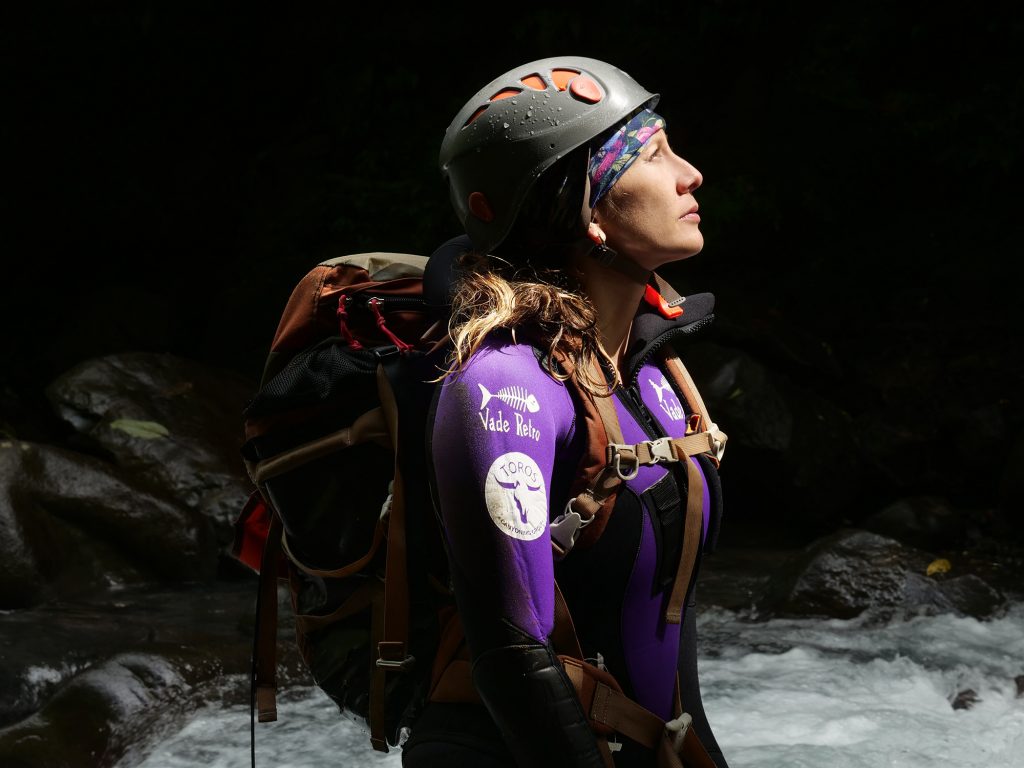
Proud photographer and canyonist
It all started in 2015, when I worked as a photographer for La Nación and did an assignment on speleology—cave exploration—in Costa Rica. Suddenly, when I finished my assignment, I was already part of the group.
Only a few months later, I lost my job.
With more time on my hands and with the same curiosity that led me to develop the article for the newspaper, I began to participate very actively in the group, which evolved into canyoning.
Costa Rica is one of the countries in the world with the most hydrological basins, and due to the broken topography, there are many waterfalls: perfect conditions for the sport of canyoning. Precisely because of this complex topography, there are many canyons, rivers and waterfalls that are still unexplored.
I’ve now spent six years combining two practices that I am passionate about, canyoning and photography. I am not sure I would do this sport if the final result were not the photographs: because I can access places where no one has ever been, I am the first to portray that space, and it fills me with joy to be able to share that experience through my photographs.
The weakest link
To be a canyoner you have to be in very good physical condition, since to get to the exploration sites you always have to walk to the top of the mountain where a river is born. You often have to use a machete to create the path and walk between slopes to finally descend along the river, the falls, the canyons.
But perhaps the most important thing is that canyoning is a team sport. To do canyoning, one must take courses in vertical techniques and learn to work the descents and ascents as a team. This sport is dangerous if you do not know what you are doing, and even if you do, there are dangers that cannot be prevented, such as water heads.
In our canyoning team, Toros Canyoning Group, there are six of us. I am the only woman. In the more than five years that we have been exploring together, I feel that I have had to put myself at their level of strength, of conditioning, because one cannot be left behind; it is a team and we must move forward together. I don’t want to be the weak link. I always go to the gym, I watch what I eat, I stay in shape.
But that feeling is not just mine. On the team we have all gone through different situations that have changed our physical condition, but we know that we are a team and that we stick together. We try to be very supportive so that no one is the weak link. Together, we are a very strong chain.
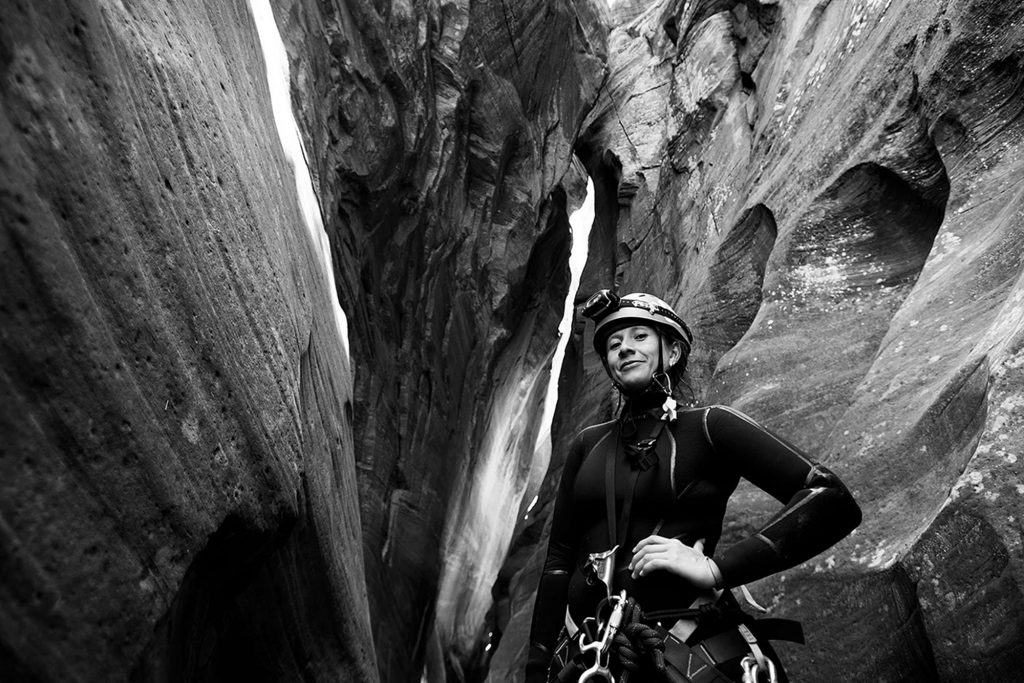
The challenges
Imagine what it’s like to be at the top of a descent of up to 100 meters, with super cold, powerful waters tumbling alongside you. You have to have a lot of concentration and overcome fear.
Those are the challenges that all of us who practice this sport face, but the few women who are part of this country’s teams must also face the challenge of erasing that stigma that women are the weaker sex.
It is not a secret that in this sport and in others such as hiking, there is always this idea that women are going to complain, they are not going to be able to do it, and they are going to get in the way. In reality, it could be that men do those things, but they are not pointed out or labeled that way.
I can happily admit that at Toros Canyoning Group, my colleagues have never made me feel “less than.” They support me along the way just as they support each other. When I offer my opinion on a decision, they listen to me. When I’m right, they follow my advice. I have had to face more discrimination and mansplaning as a sports photographer, from soccer to canyoning, despite my 16 years of experience in this medium. But of course, it is my photographs that speak at the end: they say, “Yes, I know what I’m doing!”
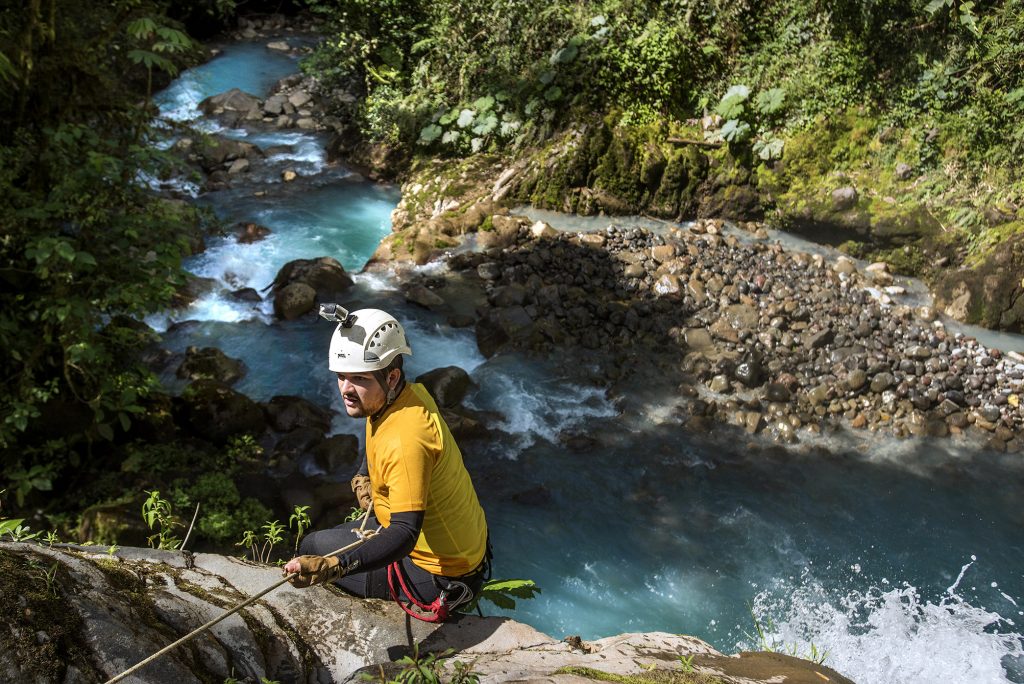
The future
My contribution to Toros Canyoning Group has been more than being the first woman in the sport. My work as main photographer, along with that of two other colleagues, has allowed us to create a record of our expeditions with images that portray the team at amazing moments.
As a team, we have a mission: to explore unknown canyons and open them up. Perhaps the baqueanos (locals knowledgeable about hidden trails) or indigenous people know about those canyons because they’ve been along the river banks, but without descending. We document our experiences and share them on our website so that canyoners from Costa Rica and other places such as the United States, Europe, Brazil, or Japan, can come to Costa Rica with that information, put the route in GPS, and travel the canyon in an autonomous and safe way. Our goal, since 2015, is to raise awareness of the sport and places to practice it in Costa Rica.
As a canyoning woman, I hope that more and more women will be encouraged to actively practice the sport. I hope that, not only in canyoning, but also in any sport and profession, there is more and more education and sharing of valuable information so that we can change the machismo of our culture and learn to see women as equals.
With my experience, with my photographs, with my work within Toros Canyoning Group, I hope that women know that they can also do this sport, because a sport that involves strength and physical condition is not something only for men. It’s about dedication, perseverance and love for what you do, regardless of gender.
Read more pieces from our February edition, “Women, Not Numbers,” here.
